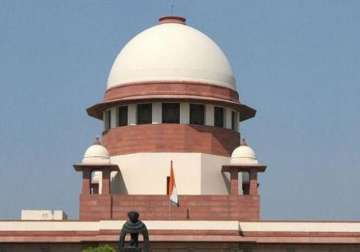New Delhi: The Supreme Court Thursday said that if the accused in Delhi Uber cab rape case was allowed to have his way of "recalling and re-examining" the witnesses, then it would be "impossible to complete a trial and punish an accused".
"You are making impossible for us to punish the accused. If we accept your argument then there would be another brilliant person (lawyer) who can point out another 10 new things to be asked to the witness which previous lawyer had not asked on account of his 'naivety' or 'lack of competence'", a bench of Justice Jagdish Singh Khehar and Justice Adarsh Kumar Goel told lawyer D.K.Mishra, appearing for accused Shiv Kumar Yadav.
"If we agree with all that you are saying then it would destroy the criminal justice system. All you are saying is that the criminal should be made to sit on our head and let him do anything he wants to do," they said.
The court said that the recall and re-examination of the witnesses could be permitted only when new material that emerges subsequently has the potential of falsifying the prosecution case. Otherwise no trial would get completed if courts were to grant plea by the accused for re-examination of witnesses.
The court's strong observation came as it reserved order on the petition by Delhi Uber cab rape victim challenging Delhi High Court's March 4 order permitting the recall and re-examination of 13 witnesses including her. Mishra had defended the recall and re-examination of witnesses on the grounds that the lawyer who represented his client in the earlier stage of the trial was naive, inexperienced and lacked competence.
The high court, while sustaining all the reasoning by the trial court rejecting the plea for recall and re-examination of witnesses by accused, had reversed its order saying that ultimately it was the accused who would suffer any delay in trial as he was in custody.
The apex court had March 10 stayed the high court order.
Appearing for Delhi Police, which had also challenged the high court order, Attorney General Mukul Rohatgi faulted the high court, saying that it was not the accused alone who would suffer delay in trial.
He contended that it was the victim who too suffered four times - first when incident took place, second time when her statement was recorded under section 164 of Code of Criminal Procedure before the magistrate, third time when she was examined before the trial court in the course of the trial and fourth time when she was re-examined following the high court order.
Rohatgi said that the high court should have rejected the plea by the accused Shiv Kumar Yadav with costs.
Latest India News
